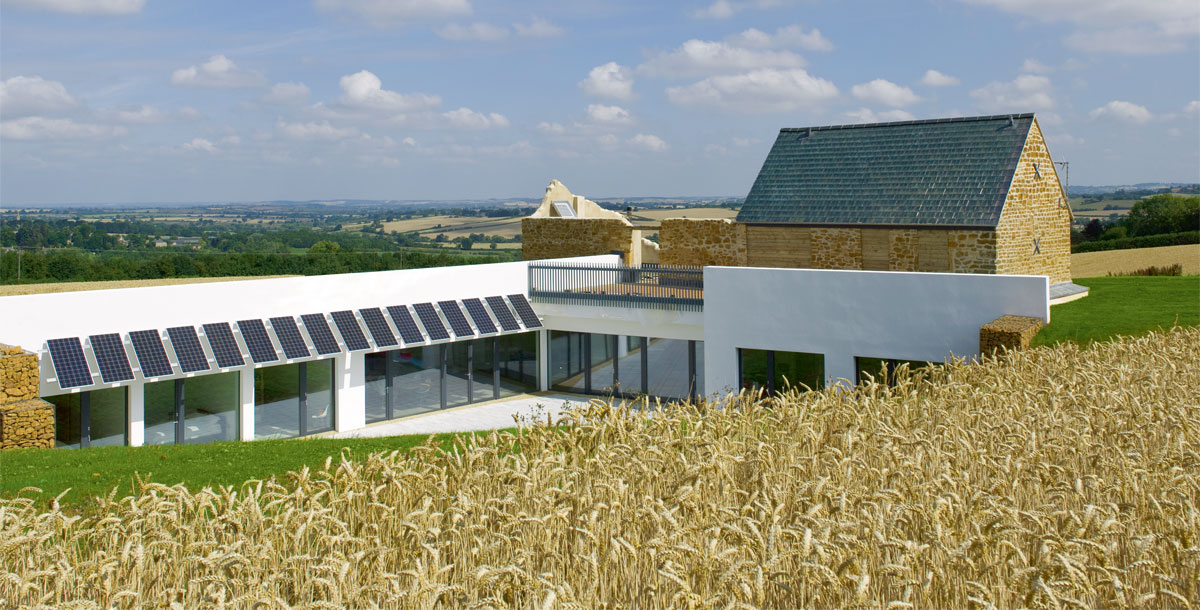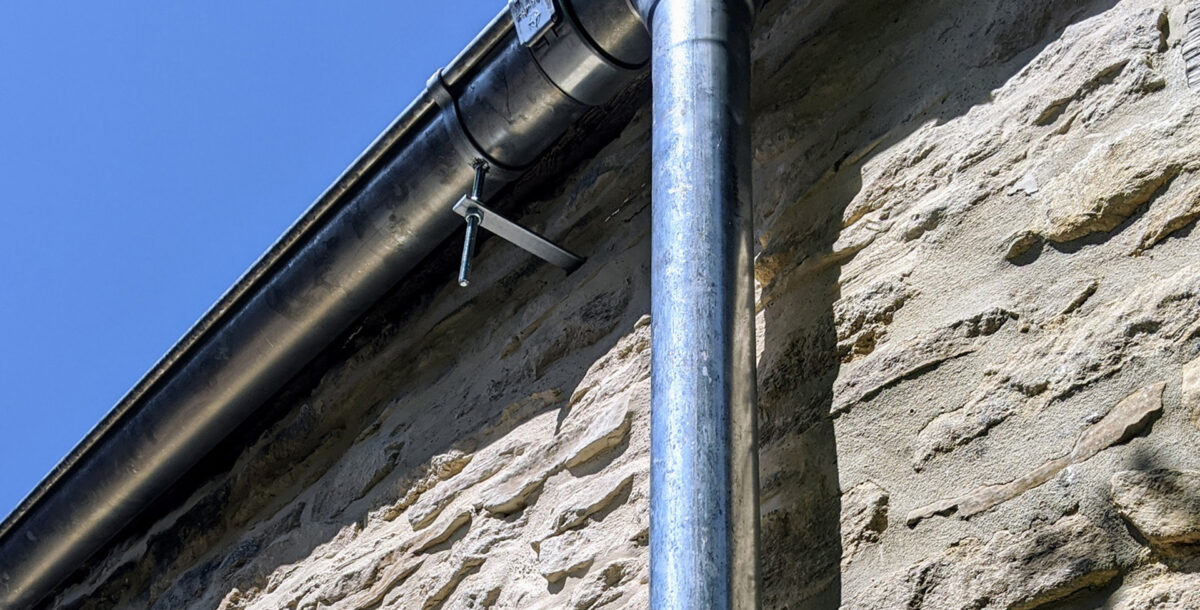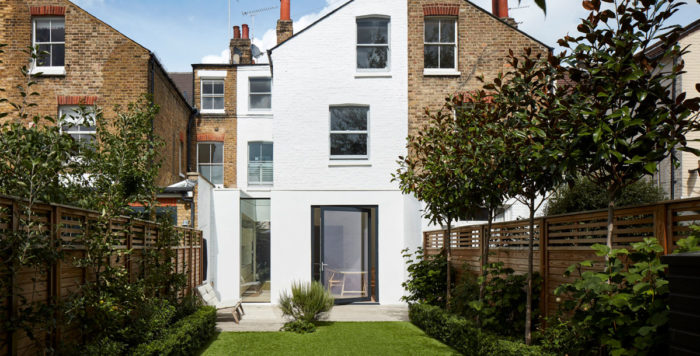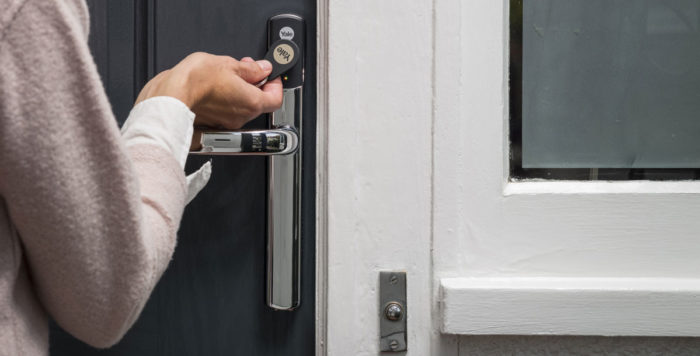Which energy-saving measures will be VAT free?
Important tax cuts were announced in the chancellor’s spring statement
VAT on home energy-saving measures such as insulation, solar panels and heat pumps will be cut from 5% to zero, chancellor Rishi Sunak announced in the Spring Statement 2022.
The changes will take effect from April 2022 and run for the next five years, making it more affordable for households to install energy saving materials (ESMs). The Northern Ireland protocol prevents immediate implementation of the 0% VAT policy in the province, however.
According to the Spring Statement 2022, a typical family with rooftop solar panels installed will save more than £1,000 in total on installation, and then £300 annually on their energy bills.
With the average cost of an air-source heat pump for a three-bedroom detached house around £8,000 to £10,000, that’s a saving of £400-£500. That may not be much of an incentive on its own, but when combined with the Boiler Upgrade Scheme, which will make £5,000 grants available towards low-carbon heating alternatives from April 2022, 0% VAT on energy-saving measures is a significant step in the right direction.
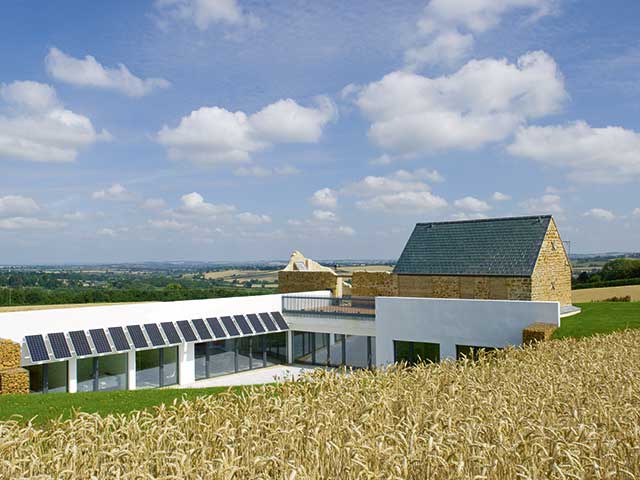
Helen and Chris Seymour-Smith built a Passivhaus under an old barn in the Cotswolds. Photo: Chris Tubbs
How have green energy campaigners and those in the industry reacted?
The Federation of Master Builders calls it a ‘step in the right direction for the retrofit market’.
Decarbonizing the UK’s housing stock is an important piece of the net-zero puzzle. 🍃
Today’s announcement of 0% VAT on all energy-efficient home improvements is a step in the right direction and provides a boost for #builders in the #retrofit market.
👉 https://t.co/Pm44acIHza pic.twitter.com/UWLgf2pjmd— FMB: Master Builders (@fmbuilders) March 23, 2022
Philip Dunne MP, Chair of the Environmental Audit Committee, hails it a ‘significant win for the sector’.
Reacting to today’s announcement in the Spring Statement that homeowners installing energy efficiency materials will not pay VAT, our Chair @Dunne4Ludlow said https://t.co/QweSAXceDm pic.twitter.com/qZrYWcT6nm
— Environmental Audit Committee (@CommonsEAC) March 23, 2022
Phil Hurley, Chairman of the Heat Pump Association, says it is ‘an important step forward’, but calls for further measures including the ‘removal of illogical environmental levies on electricity’.
The Spring Statement comes with great news for the heat pump industry and households today.
Read our response to the Green Tax Cut here 👇https://t.co/3KKHmm9ukl#EnergyEfficiency #HeatPumps pic.twitter.com/RhX05yk9Ul
— HPA (@HeatPumpAssoc) March 23, 2022
Dr Doug Parr, Policy Director of Greenpeace UK, says that while the VAT cut on ESM is a ‘welcome start to ending that huge waste of energy, helping keep bills down and cut our gas use’, it can only be the start.
Greenpeace reaction to the Chancellor #SpringStatement pic.twitter.com/xZRc1OkXMi
— Doug Parr (@doug_parr) March 23, 2022
Do the measures go far enough?
Before installing any new energy-efficient heating system, experts advise that it is important to improve your home’s thermal envelope. Ensuring the building is well-insulated – another ESM this will become VAT-exempt from April 2022 – means that your home will require less energy to heat or cool it.
Insulate Britain has called for a national retrofit plan ‘immediately’, taking to Twitter to say that ‘no one will have any money to spend on heat pumps or solar panels’.
Sam Hall, Director of the Conservative Environment Network – a group of Tory MPs who had previously urged the Chancellor to slash VAT on ESM – says that the VAT cut ‘will help families afford these improvements and cut their energy costs permanently’.
💬 CEN Director @samuelhall0: “Slashing VAT on energy saving materials and installation will help families afford these improvements and cut their energy costs permanently, saving the Treasury money in the long run by dealing with one of the root causes of fuel poverty.” https://t.co/5GJ2e0KoVL
— Conservative Environment Network (@CEN_HQ) March 23, 2022
The Guardian has also outlined five environmentally friendly policies Sunak could have introduced in the Spring Statement 2022, including a windfall tax on oil and gas companies, skills development to boost the number of people qualified to install insulation and heat pumps, and green mortgages that enable people to add the cost of energy-efficient upgrades to their mortgages at low interest rates.

